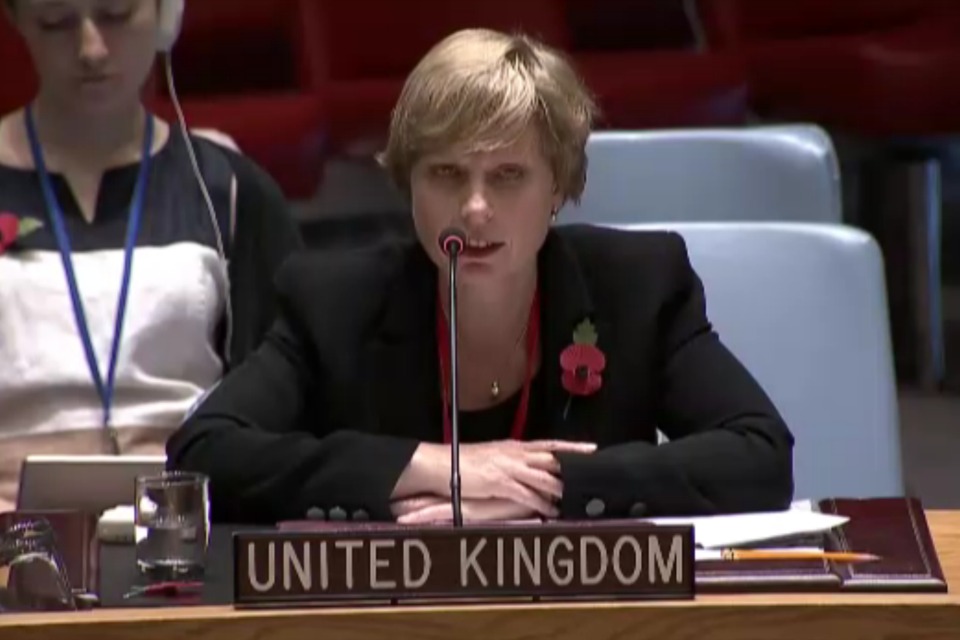"There must be justice for the Libyan people"
Statement by the Legal Counsellor to the UK Mission to the UN, to the Security Council Briefing by the ICC on Libya Cases

Thank you Mr President,
And I thank the Prosecutor for her report and for her briefing on Libya.
The United Kingdom is concerned about the continued violence and political instability in Libya. The recent Supreme Court ruling, that the internationally recognised government is unconstitutional, highlights the significant challenges facing Libya. The UK is examining the judgement and the circumstances surrounding the ruling. We are particularly concerned about reports that a car bomb went off in front of the security headquarters in the eastern city of Shahat on Sunday.
It is imperative that all actors in Libya work towards political solutions to the challenges facing the country. We call on all Libyans to set aside their individual differences and support the UN-led efforts to mediate between key Libyan leaders to agree to a ceasefire and reach a lasting political settlement. This is the only route to stability and prosperity.
However, it is not just for the Libyans themselves to work towards a solution. A stable, democratic and prosperous Libya that contributes to stability and security in the region is in all our interests. The international community must support the efforts of the UN. Jonathan Powell, the UK Special Envoy to the Libyan political transition, is working to support the efforts of UN Special Representative Bernadino Leon. We call on all States to give their full support for his work.
Mr President,
The United Kingdom supports the call by the Prosecutor for all parties involved in the ongoing fighting to refrain from targeting civilians or civilian objects. We urge all parties to refrain from committing Rome Statute crimes or human rights violations.
In order for there to be a sustainable peace in Libya, individuals who have committed atrocities must be held accountable for their actions. There must be no impunity for perpetrators of war crimes and crimes against humanity. It is also important that those who have committed human rights abuses in the ongoing fighting should face justice. It is vital that Libya’s future is built upon a firm foundation that protects and promotes human rights for all.
The UK recalls the statement in July of the Prosecutor of the International Criminal Court, Fatou Bensouda, in which she stated that her office is monitoring the situation in Libya and may exercise its jurisdiction over any crime against humanity or war crime committed there since 15 February 2011.
Mr President,
The United Kingdom welcomes the continuing dialogue between the Government of Libya and the Office of the Prosecutor and appreciates the spirit of collaboration. We encourage the Government of Libya to continue to work with the Prosecutor to confront the challenges that Libya faces, including through implementation of the Memorandum of Understanding on burden sharing regarding the investigations and prosecutions of former Qadhafi officials.
The United Kingdom thanks the Prosecutor for the update on the cases against Saif Al-Islam Qadhafi and Abdullah Al-Senussi. The United Kingdom continues to urge Libya’s full cooperation with the Court. We recall Libya’s obligation to cooperate fully with, and provide any necessary assistance to, the Court and the Prosecutor, pursuant to resolution 1970. And we also note the 21 May 2014 Appeals Chamber decision confirming that the Saif Al-Islam Qadhafi case is admissible before the ICC; Libya remains under an obligation to surrender him to the Court.
Mr President,
The United Kingdom will continue to support efforts to bring about a sustainable peace in Libya. An important part of these efforts must be holding perpetrators of war crimes and crimes against humanity to account. There must be justice for the Libyan people who have been the victims of atrocities.
Thank you Mr President.